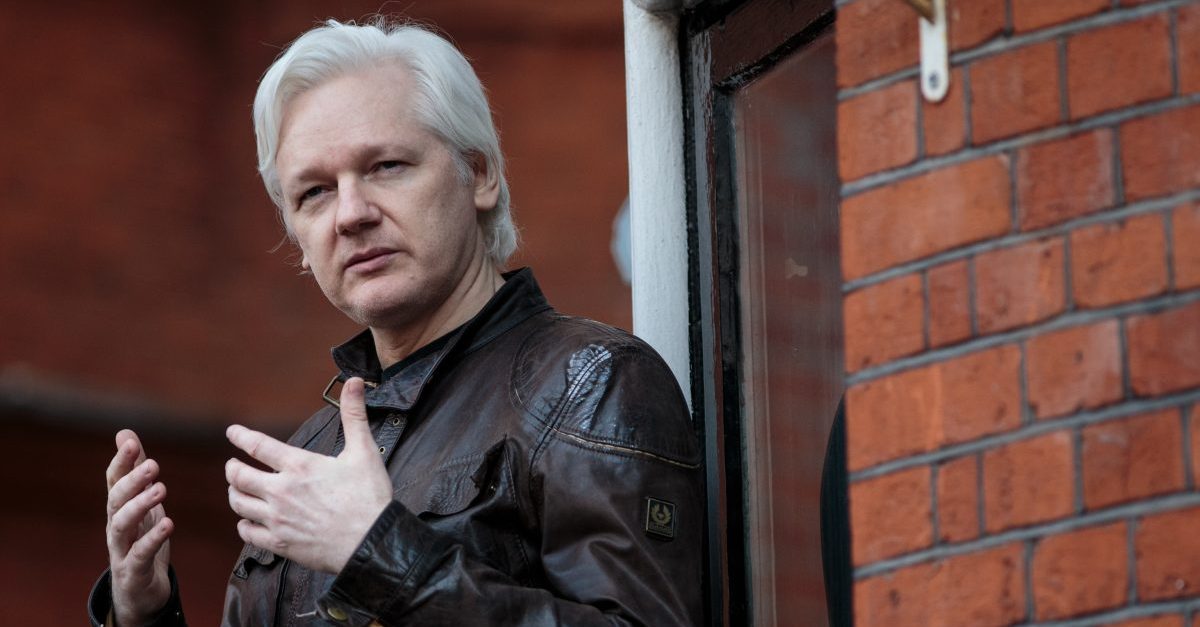
WikiLeaks founder Julian Assange has or hasn’t been charged, the government said in a cagey Monday court filing.
The Reporters Committee for Freedom of the Press (RCFP) responded to the news that federal prosecutors had erroneously exposed Assange as a target of criminal charges by requesting that the government unseal Assange’s criminal prosecution. The government’s response? Get lost.
U.S. Attorney for the Eastern District of Virginia G. Zachary Terwilliger responded to the error by saying the government “accepts full responsibility for that mistake.”
However, Terwilliger said, “Even though that error may have triggered speculation [about Assange charges] by the Reporters Committee, the plaintiff’s application lacks merit and should be denied in light of established law and precedent.”
“While the government has admitted that the aforementioned court filing was made in error, it has not confirmed or denied whether charges against Julian Assange exist, which is what the plaintiff seeks to learn through its application,” he continued. “Neither the First Amendment nor the common law require that the government provide such a confirmation or denial.”
In other words, even though the erroneous filing in question somehow, some way said “due to the sophistication of the defendant and the publicity surrounding the case, no other procedure is likely to keep confidential the fact that Assange has been charged,” the government doesn’t have to say anything right now.
“In our system, if a person is publicly charged with a crime, the charges and relevant case- related filings are publicly available through the clerk’s office. Generally, if the public court record/docket does not contain charges against a particular individual, there are two possibilities: 1) the person is not charged; or 2) the person is charged under seal,” Terwilliger said. “In either event, the government is not required to publicly acknowledge which of those two possibilities happens.”
“In short, while the Reporters Committee Application seeks to challenge any decision to seal any charges here, because the government has not confirmed or denied any such charges, its Application is premature and should be denied,” he concluded.
The attention to the Assange situation is of special interest since Special Counsel Robert Mueller has been attempting to learn, as part of his investigation into Russian interference in the 2016 election, how WikiLeaks came to obtain hacked DNC emails in 2016 and whether people involved with the Trump campaign knew about this in advance.
Gov’t Response to Julian Assange Error by Law&Crime on Scribd
[Image via Jack Taylor/Getty Images]